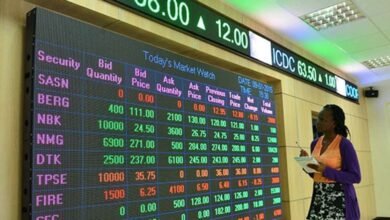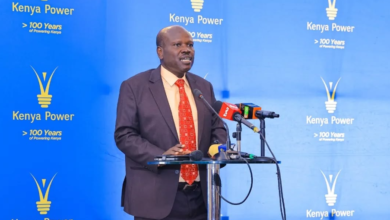
A new survey has shown that Kenya’s economy suffered a sharp contraction in April following renewed curbs against COVID-19.
The latest Stanbic Bank Kenya Purchasing Managers Index (PMI) survey data indicated the first declines in activity and new business since June 2020, with renewed lockdown and curfew measures in Kenya being blamed for a steep decrease in output at the start of the second quarter.
The seasonally adjusted Output Index fell sharply below the 50.0 neutral marks to 41.5, marking the quickest rate of contraction since May 2020. Readings above 50.0 signal an improvement in business conditions on the previous month, while readings below 50.0 show a deterioration.
Respondents mentioned that a reduction in movement and cash flow severely limited business activity. The partial lockdown in five counties including Nairobi, and increased curfew hours, had a considerable impact on movement and demand, with the decrease in new orders the most marked since May last year.
Subsequently, employment numbers, input purchases and inventories were all lowered. This as cost pressures continued to rise due to higher fuel prices and supply shortages.
“Business activity contracted in April following the re-imposition of more stringent public health restrictions at the end of March. The increased restrictions resulted in lower demand which forced firms to cut back on output and spending on inputs. Despite a continued rise in input prices driven by higher global commodity prices, several firms offered discounts to customers to try to improve sales.” said Kuria Kamau, Fixed Income and Currency Strategist at Stanbic Bank.
New order volumes fell at a considerable pace in April, as around 41 percent of businesses found that demand had weakened from the previous month.
“In fact, the rate of decline was the sharpest since May 2020 during the initial COVID-19 lockdown.”
In the report, firms highlighted that a rise in COVID-19 cases had led to tougher restrictions and lockdowns in a number of counties including Nairobi. All five monitored sectors recorded a fresh decline in new orders.
Private sector companies in Kenya reduced their staff levels at the start of the second quarter, which was generally attributed to a drop in new work due to new COVID-19 measures.
The overall decline in employment was the first since last September and the most marked for ten months. However, job cuts were less severe than those seen during the first lockdown in 2020, with only around 9 percent of survey respondents seeing a decrease from March.
At the same time, input costs rose sharply due to an increase in fuel prices and raw material shortages linked to global supply issues. While this led to a fourth successive rise in output charges, the rate of inflation eased to the weakest seen in this sequence as several businesses offered discounts to try to improve sales.
With demand for inputs falling, supply chain performance improved again in April as vendors had fewer deliveries to make. However, lockdown restrictions led to delays for a number of firms, with the overall reduction in lead times the slowest for 11 months.
Companies were notably less confident about future output growth in April as a result of the severe impact of lockdown measures.
The 12-month outlook for business conditions also fell to the lowest level since the survey started in 2014. According to the survey, just over one-in-five respondents expect output to grow, linked to expansion plans and efforts to raise new business, while 77 percent of firms gave a neutral outlook.





